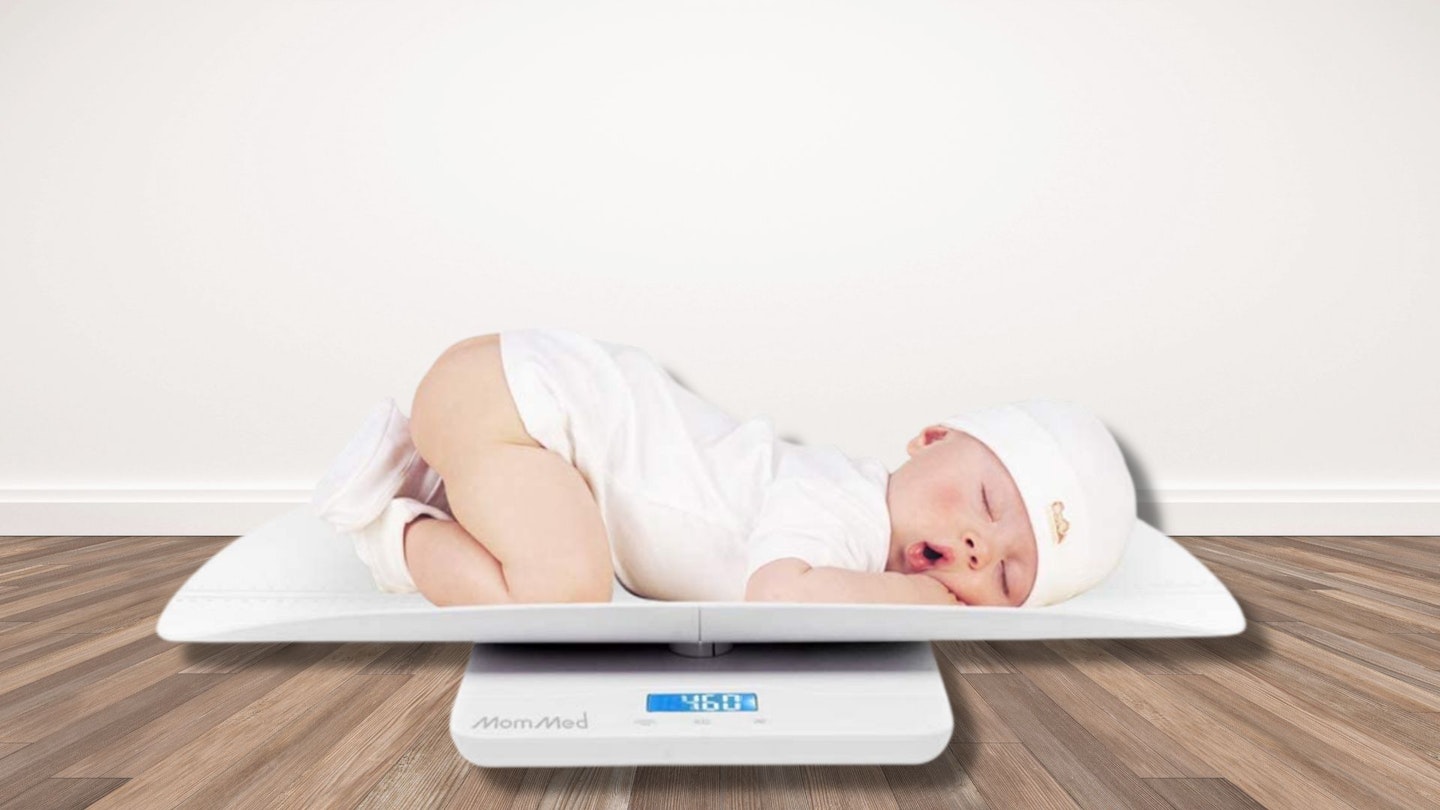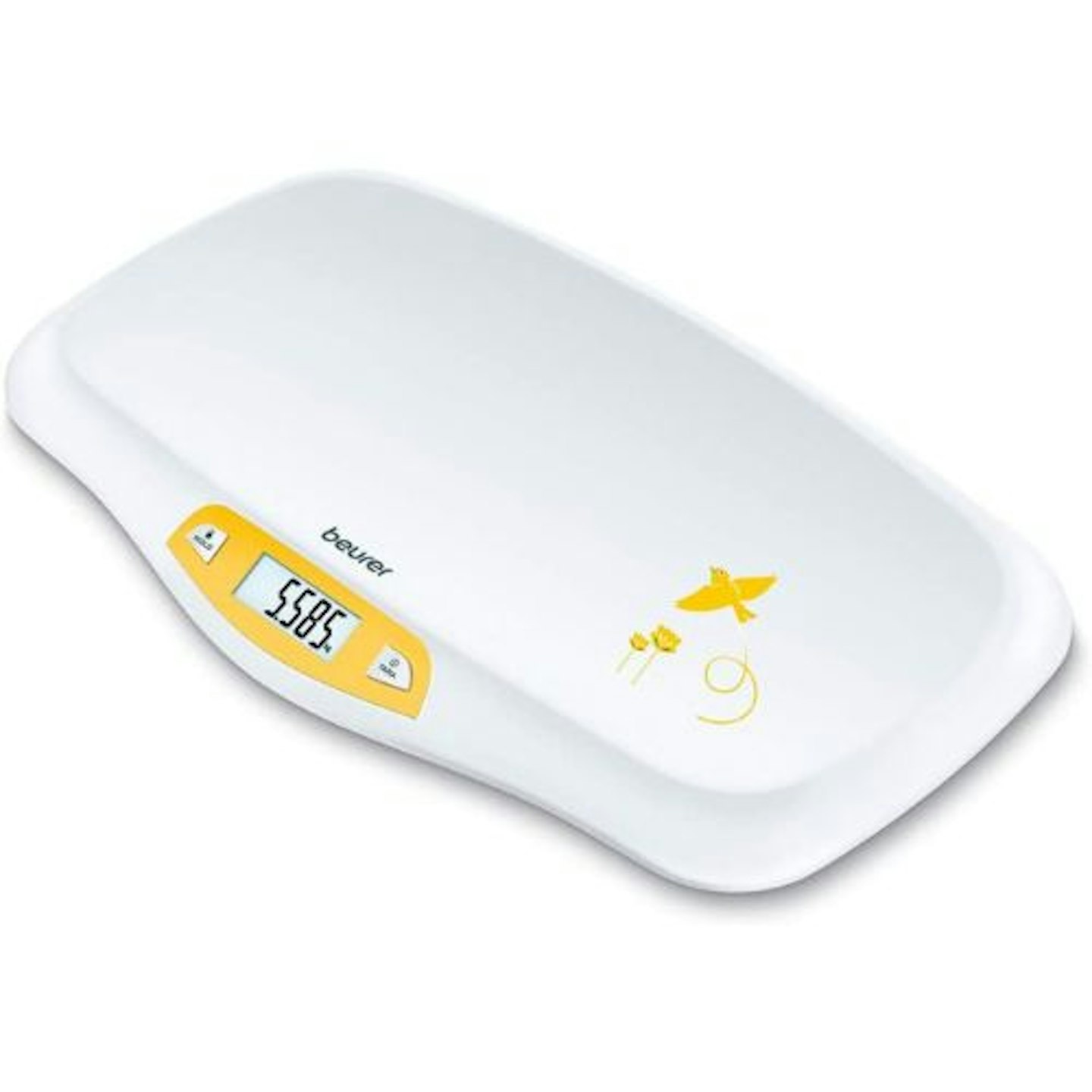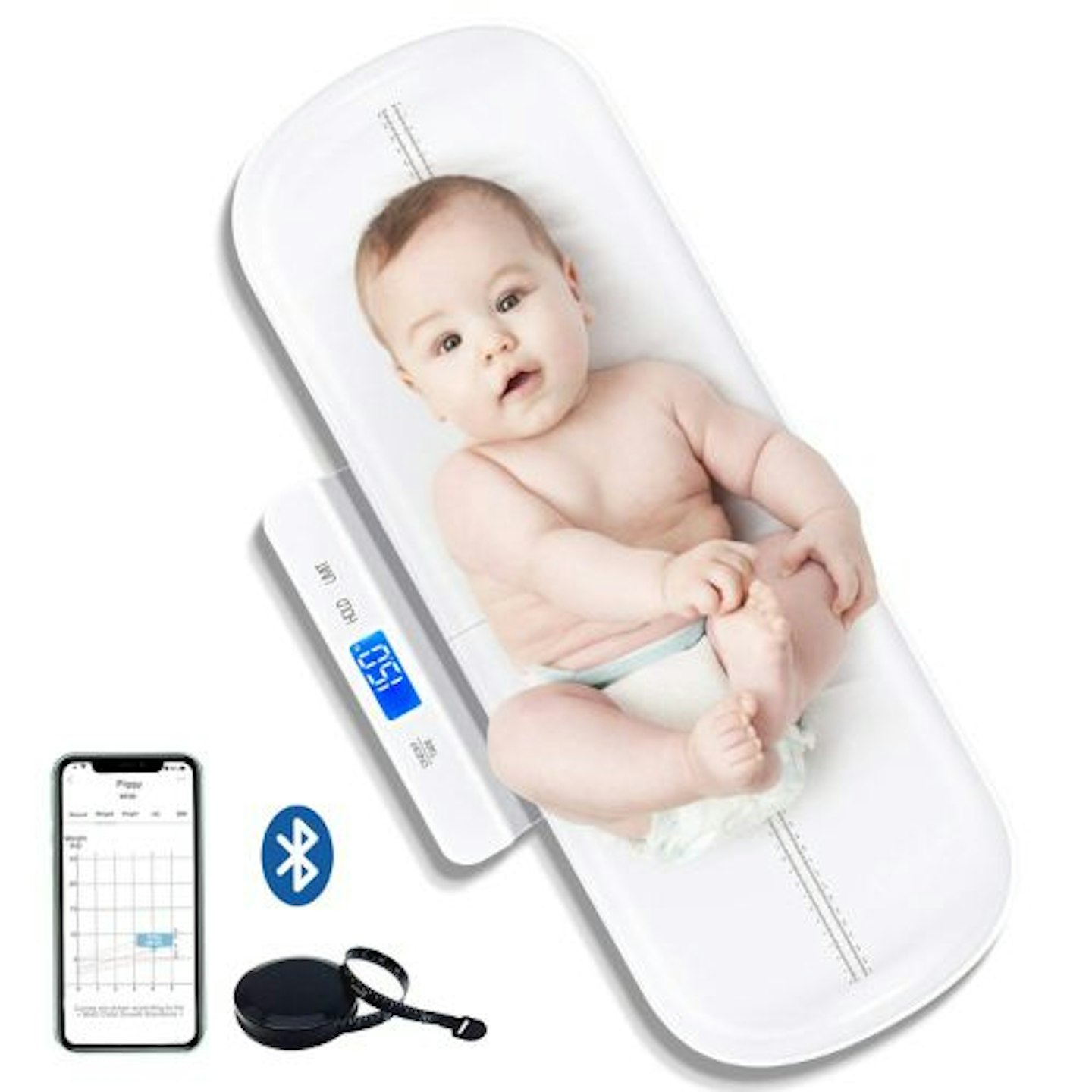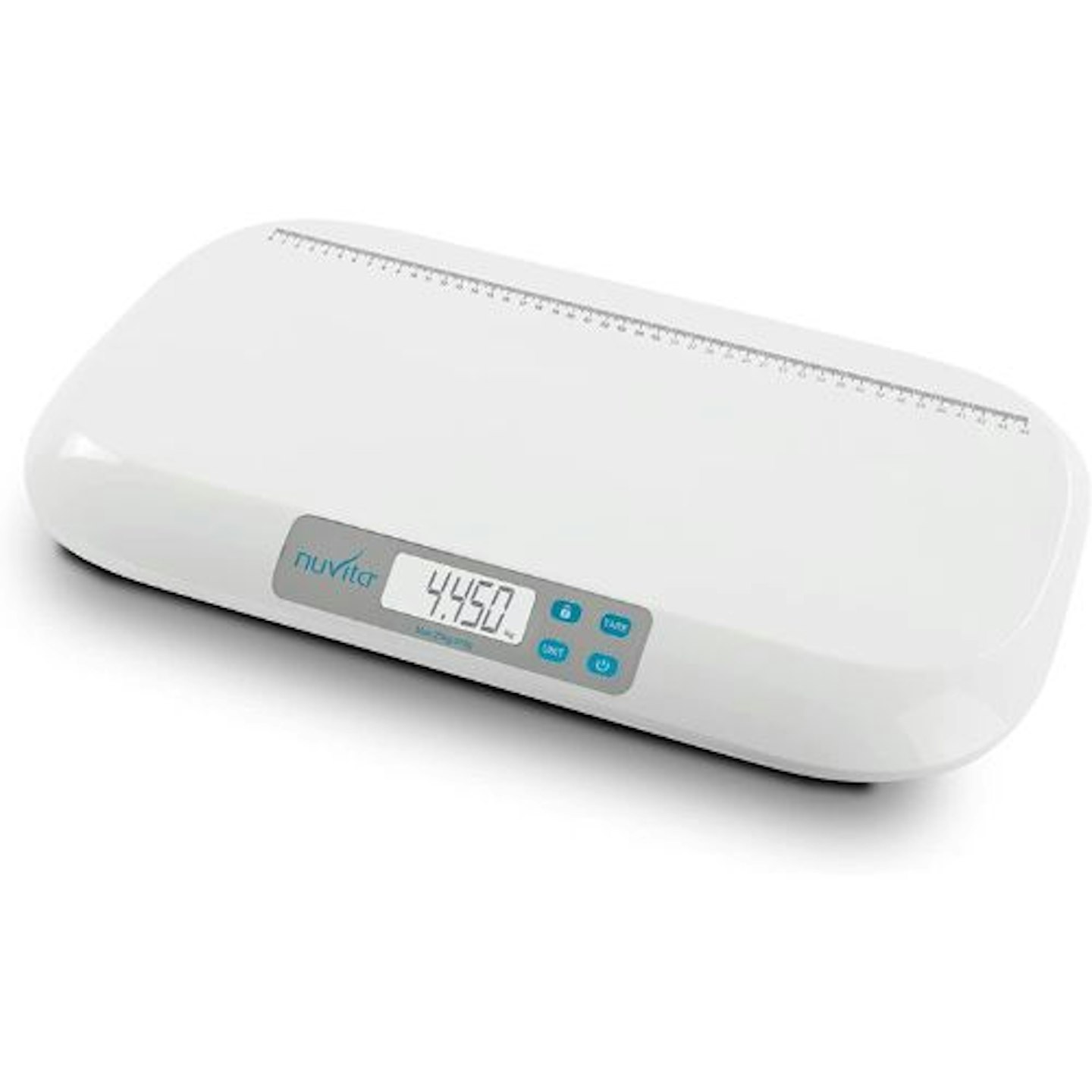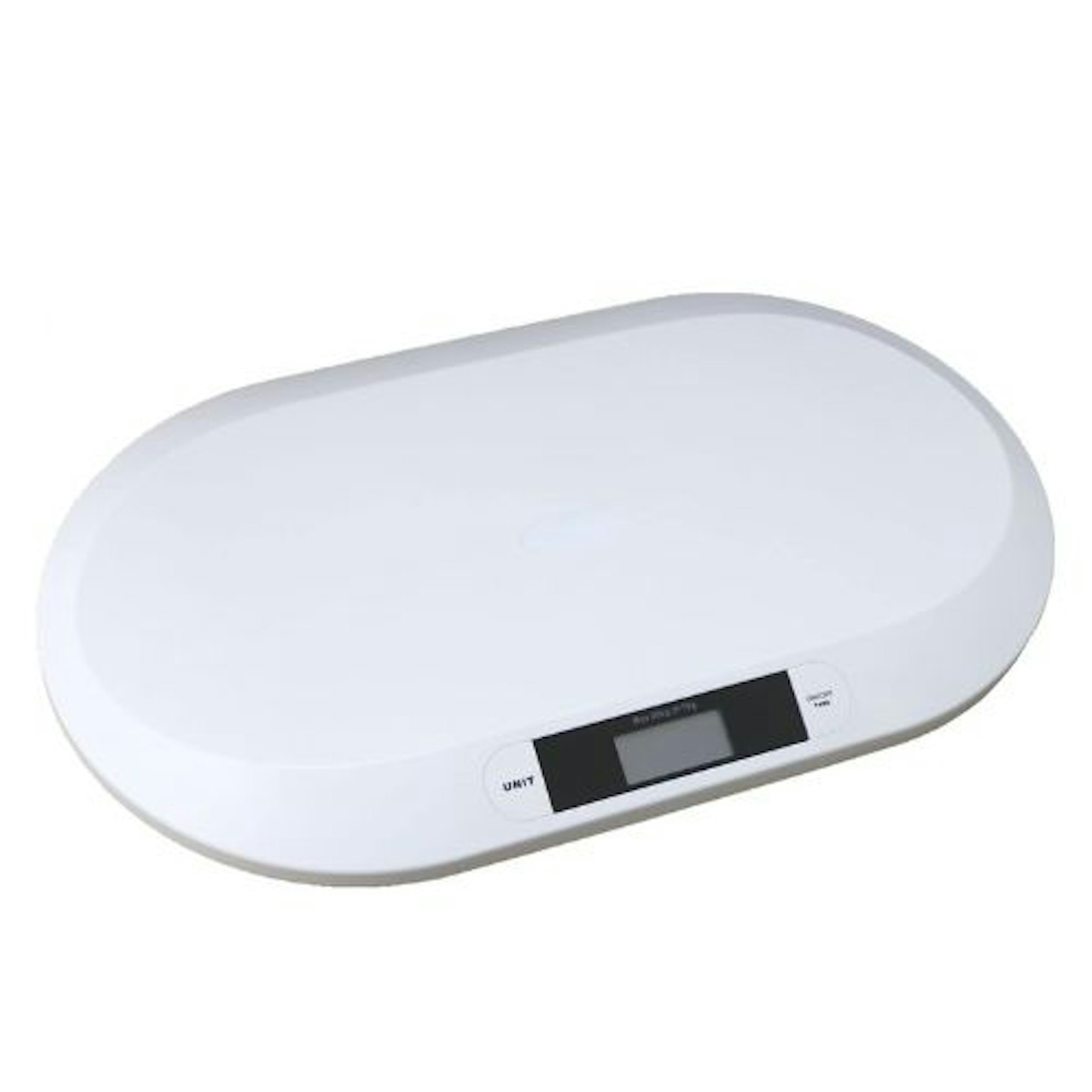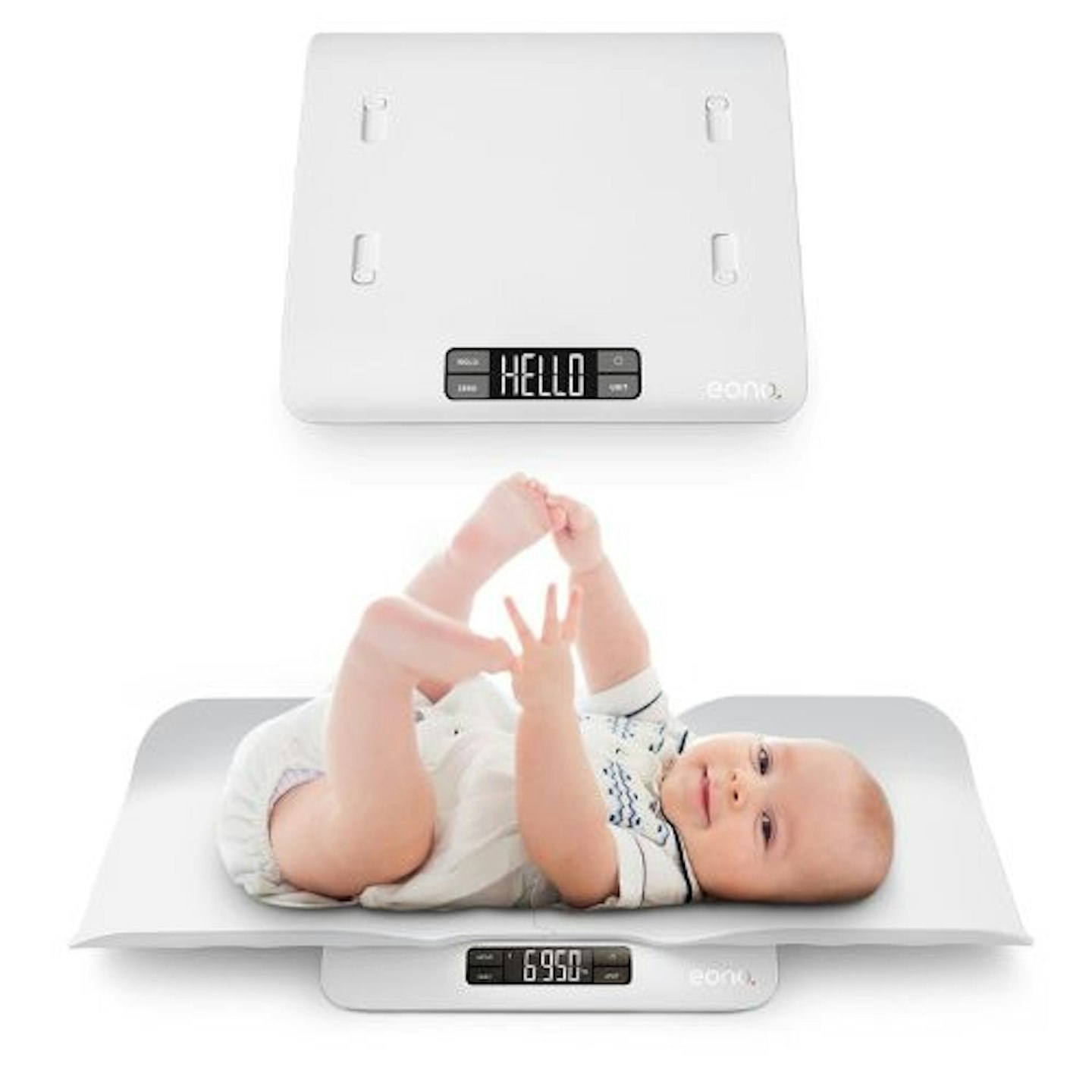Buying a baby scale to use at home can be a game changer if you want to keep a regular log of your baby's weight gain. We've shared the best baby scales to buy with everything you need to know for choosing the right one for you and your bubba.
Following birth, it is normal for your baby to lose a bit of their birth weight. You will then check in with your health visitor until they get back up to, or over that weight which will be tracked on their baby weight chart. After this, you can arrange to see your local health visitor but weighing your baby is not compulsory unless you have any concerns that you need to discuss.
If you breastfeed, it’s also helpful to know that your baby is putting on weight as you can’t physically see what they are drinking.
Other than seeing your baby go up in clothing sizes, it's hard to see how much weight your baby is putting on, so buying a baby weighing scale can be a huge help, especially after they've been through a baby growth spurt.
The best baby scales 2023
Best for comfort
Designed with an ergonomic shape for your babies comfort, the Beurer digital scale is easy to use in the comfort of your own home. It has a large LCD screen to clearly read measurements, which you can also convert from kilograms, to pounds and ounces.
One review said: "Very happy with it. My baby was small when he was born and I was worried that he’s not gaining weight. I’ve been using it for almost every day for 4 months. Very easy to use and accurate. Highly recommend."
Pros
- Comfortable for baby
- Different measurement settings
- Tare and hold function
- Battery operated
Cons
- Length of the weight tray isn't long
Best multifunction scale
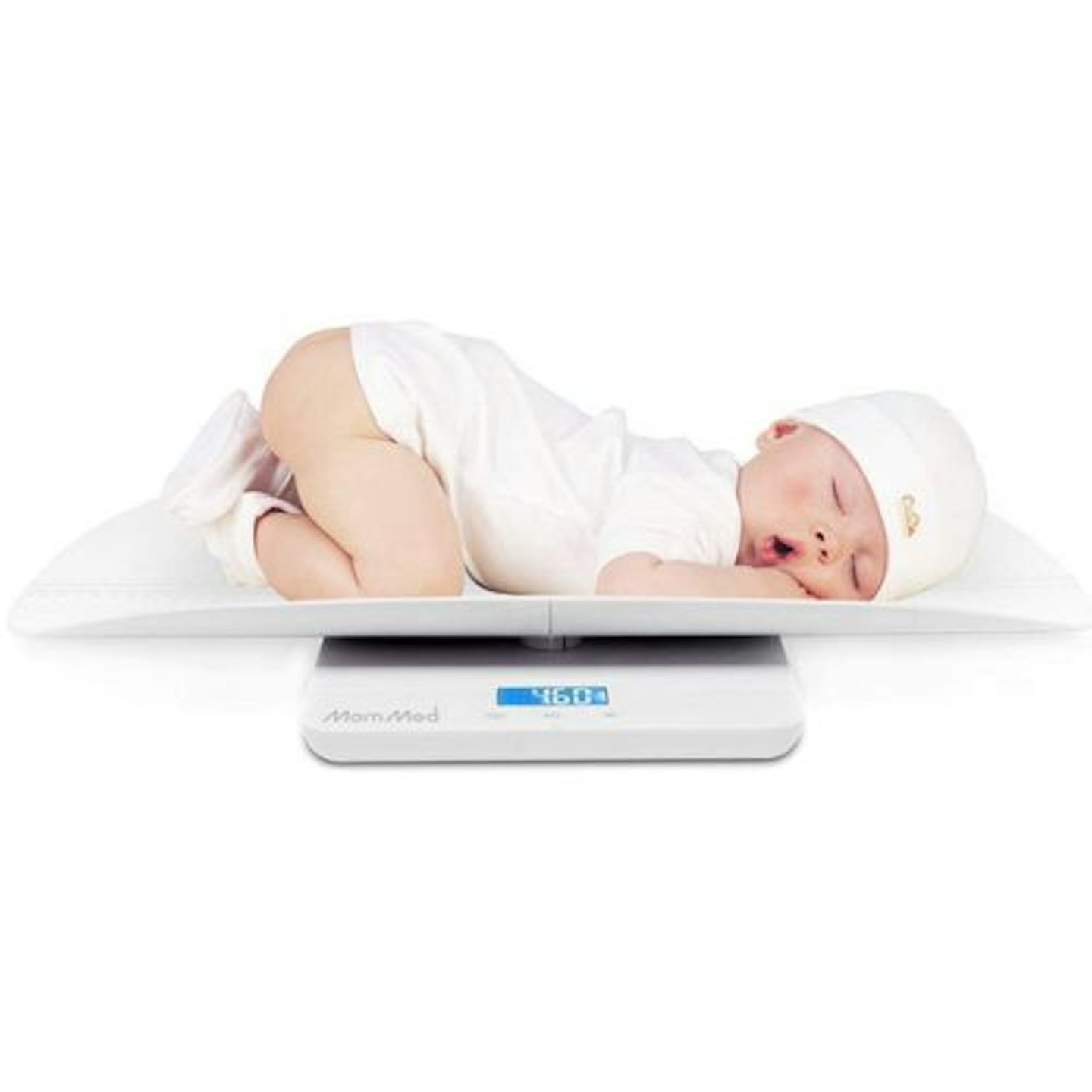
With four sensors to provide accurate results, the MOMMED baby scale is suitable to use from baby's birth and up to 100kg, allowing you to track babies weight throughout their life. It has a swivel lock tray that's designed for babies comfort. The tray also features height measurement so that you can measure babies height.
One review said: "I would strongly recommend this scales, very accurate and easy to use. This was got for breastfed baby as I was concerned if baby was getting enough milk. I weigh her weekly and for the reassurance it provides, it is one of the best purchases I have made."
Pros
- Concave tray with height measurements
- Four precise sensors
- Battery operated
- Large LCD display
- Tare and hold function
Cons
- Very sensitive to movement
Best bluetooth scale
Save time when weighing your baby by connecting this handy scale to a free app, that records and tracks your baby's weight. It also has multiple units, so that you can measure baby in the units you prefer. The tare and hold function also helps record accurate data, even if baby is wriggling.
One review said: "Super easy to put together but not having actual buttons threw me off a bit. Especially trying to turn it off. It’s pretty accurate compared to doctors office. Sturdy enough for a squirmy baby. Definitely recommend for parents who need to track their little one’s weight."
Pros
- Free App to sync measurements
- Tare and hold function
- Highly accurate
Cons
- Have to wait for the app to connect to record measurement
Recommended
This baby scale provides precise measurements, even if your baby is wriggling around. It also has a double weight mode so you can weigh your baby before and after feeding, to know how much milk was consumed.
One review said: "If you had a baby with concerns about their weight then this would be an easy way of weighing them at home to check they were on track. It is easy to use and a nice design."
Pros
- Precise and accurate
- Tare function
- Double-weight mode to compare weights
Cons
- Not suitable for longer babies
Recommended
With a sleek design and non-slip footpads, this scale supports your baby safely while weighing. It has high precision measurements and can handle wriggly babies easily. It also has a clear display screen for easier reading in a rush.
One review said: "Such a brill product. I bought this so I could track babies weight through lockdown and it’s super easy to use and slim enough to tuck away when not in use."
Pros
- Can be used for pets too
- Easy to clean
- Portable
Cons
- Not suitable for toddlers
Top Choice
With high-precision sensors, this baby scale accurately measures the weight of your baby and can even be switched from baby to toddler mode. It even has a hold function, giving you time to record your baby's weight.
One review said: "For the price I was so shocked to how good this product is. It's so easy to assemble & easy to use. Recommend if you want to keep track of your baby's weigh gain. Doesn't feel cheap it's a great product."
Pros
- Easy to assemble
- Tare and hold functions
- 30 kilogram weight limit
- Curved baby scale tray
Cons
- Baby can rest their arm off the scale/ hit the display at the narrow part of the tray
How to choose the right baby scale
Weighing tray
A scale with a weighing tray is a key feature that you need to consider when buying a baby scale. This holds your baby safely and comfortably on the scales, so choose a tray that has a smooth design and rounded edges.
Hold function
Even though it’s not essential, a hold function can come in handy when weighing your baby. Unless your baby is asleep, they are not likely to be laying still on the scales.
This function will record your baby’s weight more accurately, without fluctuating at every wriggle and stretch.
Weight range
Choosing a scale that has a higher weighing capacity will mean you can still use the scales as your baby grows.
Unit of measurement
A scale with different units of measurement will save you time in converting the weight. Opt for a scale that lets you pick the unit you prefer, such as kilograms, pounds, and ounces.
Accuracy
Having a scale with good accuracy is important to ensure you get accurate readings when you measure your baby.
Baby scales FAQs
Are baby scales accurate?
If used correctly, baby scales are incredibly accurate. Ensure that the scale is fully charged or has fresh batteries. Make sure that the surface you are weighing on is flat and smooth too and that your baby is without clothes or a nappy.
Some scales have a ‘Tare’ feature, which will consider additional weight from blankets or clothing.
How do I weigh my baby?
Make sure you place a changing pad, clean nappy and change of clothes close by to make the process easier. Then set up your scales on a flat, even surface.
Turn on the scales, then remove your baby’s clothes and nappy. Once you’ve done this, carefully lay your baby onto the tray while supporting their head.
Make a note of the weight, but be sure to never leave a baby unattended, so keeping a notepad by is a huge help.
If your scale has a ‘hold’ feature, press this button to keep the measurement on the screen while you get your baby dressed.
Can I weigh my baby on regular scales?
You can use your own scales to weigh your baby, but it is a bit trickier to work out. If you weigh yourself first, then step back onto the scales while holding your baby, you can work out the difference between the two weights.
For a more accurate measurement, make sure your baby is not wearing clothes or a nappy.
How often should I weigh my baby?
During the first two weeks after birth, your baby will be weighed a few times by your health visitor. This is to make sure your baby is regaining their birthweight.
After that, your baby doesn’t need to be weighed more than once a month up to when they are 6 months old.
Samantha Ball is a Product & Lifestyle Writer and freelanced for the Mother&Baby website for two years before joining the team full time. She's a mum of two and loves browsing for the best products and cute outfits.
